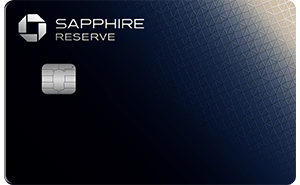Smart Money Podcast: Important Job Interview Questions and Travel Insurance Tips
Many, or all, of the products featured on this page are from our advertising partners who compensate us when you take certain actions on our website or click to take an action on their website. However, this does not influence our evaluations. Our opinions are our own. Here is a list of our partners and here's how we make money.
Welcome to NerdWallet’s Smart Money podcast, where we answer your real-world money questions. In this episode:
Ace your next job interview with questions you may not have considered asking, then learn how travel insurance works.
This Week in Your Money: Before you head into your next job interview, consider asking yourself some questions suggested by hosts Sean Pyles and Liz Weston. They share specific questions you can ask in an interview to gain valuable insights into the position and the organization. They also suggest things you may want to ask yourself before jumping into a new role.
Today’s Money Question: Travel Nerd Sally French joins Sean and Liz to explore the intricacies of travel insurance. They discuss the types of coverage available, including cancel for any reason coverage and medical coverage, and the benefits of each. Then, they delve into the limitations of certain travel insurance policies, particularly those associated with credit cards. Finally, they explain the importance of understanding the specifics of a policy and options for assessing whether it suits individual travel needs and circumstances.
Check out this episode on your favorite podcast platform, including:
NerdWallet stories related to this episode:
Have a money question? Text or call us at 901-730-6373. Or you can email us at [email protected]. To hear previous episodes, go to the podcast homepage.

Episode transcript
Sean Pyles: You might be wondering, is now the right time to jump into a new job?
Liz Weston: But the hiring process can be intimidating, especially if you haven't interviewed for a job for a while. So with this episode, we've got Nerdy tips to help you land your next job.
Sean Pyles: Welcome to NerdWallet's Smart Money podcast, where you send us your money questions, and we answer them with the help of our genius Nerds. I'm Sean Pyles.
Liz Weston: And I'm Liz Weston.
Sean Pyles: Listener, you know the drill. Send us your money questions and I will unleash my horde of Nerds to answer them.
Liz Weston: Horde?
Sean Pyles: I just finished watching “Lord of the Rings,” so I guess I've got hordes on the brain. Anyway, you can email a voice memo of your money question to [email protected] or leave a voicemail on the Nerd hotline at 901-730-6373. That's 901-730-N-E-R-D. Or if you prefer written communication, you can text your questions to the Nerd hotline or write an email to [email protected].
Liz Weston: In this episode, Sean and I are answering a listener's question about whether they should take out a new travel card for its travel insurance perk. But first, we'll give you a few tips for your next job interview.
Sean Pyles: Specifically, we will give you a few questions to ask a recruiter even before your interview. Navigating recruiters can be a confusing part of the job interview process, but asking the right questions can help prepare you for the interview itself and help you determine if the job is even right for you. But before we get into any of that, I want to give a shoutout to NerdWallet writer Cara Smith who wrote the article that inspired this segment.
Liz Weston: All right, Sean, so what questions should people be asking their recruiters before that first interview?
Sean Pyles: One of the most important questions is how long has this position been available, because this helps you learn a lot about the position itself. If it's a newer listing, that might be a more competitive job, maybe with a lengthy interview process. However, if it's a much older listing that could flag that the job has been hard to fill, maybe due to unique challenges in the role or the organization, or maybe because they're expecting too much and paying too little.
Liz Weston: Oh, that could be really good to know upfront. OK, what's the next question you should ask?
Sean Pyles: Another one is about the structure of the interview process. This can vary so much depending on the job itself and the organization. So knowing what you're in for can help you understand whether it's going to be seven interviews or one, are they going to be panel interviews or one-on-one interviews. All of this stuff is really good to know.
Liz Weston: I was just thinking about getting hired at NerdWallet back in the day and I was used to maybe one or two interviews and it was a freaking marathon that went on all day. I was exhausted by the end of it. How about you, Sean?
Sean Pyles: My interview process at NerdWallet took a full month. It was kind of like a reality TV show. They brought in 20 young writers to learn different forms of journalistic personal finance writing, and of the 20, 10 of us got hired. I was obviously among them. It was great, but it did feel a little bit cutthroat at the same time as I was learning valuable skills. So needless to say, it was very unconventional.
Liz Weston: That's a long time to be under a microscope. Wow.
Sean Pyles: Yes. All right, so the next question folks will want to ask a recruiter is what kind of person does the company typically hire? This question can help you get a feel for the characteristics that the hiring manager is looking for. Do they want someone who takes direction well or who is more self-directed? The answer to this question can also give you a feel for the company's culture.
Liz Weston: So most of these questions, Sean, have been directed at the recruiter about the company. How about a question you can ask yourself?
Sean Pyles: Yeah, I think folks should ask themselves what they want from a new job because changing jobs obviously is a really big decision. So before you make that jump, get clear on exactly what you would want from a new employment opportunity. Maybe it's a new challenge or honestly just a change of scenery or a pay bump.
Liz Weston: Yeah, there's no one right answer to that question, but knowing your answer can help you find a job that's a good fit for you. You can get caught up in the interview process and just want to win without thinking about is this really someplace that I want to be?
Sean Pyles: Right? And answering this question also involves knowing what you don't want from a job. Maybe there's a role that has the work that you want to pursue, but you would have to move to an expensive city, or the job would be entirely remote and you prefer to go into an office. These are all things that you want to think through before having a huge life change that is a job change.
Liz Weston: It sounds like, bottom line, you want to get as much information about the new role as you can and find the job that offers the right mix of personal fulfillment, good pay and convenience for your lifestyle.
Sean Pyles: Absolutely.
Liz Weston: Listener, do you have any great tips for landing a new job? Let us know. Email us at [email protected] or contact us on the Nerd hotline at 901-730-6373.
Sean Pyles: All right, well, before we move on, a quick reminder, listener. To help make me a social media icon, I have new accounts on TikTok and Instagram where I'll be posting some of my favorite money tips and additional content from the podcast. You can find me at SeanPyles_NerdWallet on both TikTok and Instagram. That is SeanPyles_NerdWallet.
My goal is to make these channels a place where we can get deeper into our money conversations, but I need you all to make it work. So one last time, follow me at SeanPyles_NerdWallet on TikTok and Instagram.
Liz Weston: You won't be sorry.
Sean Pyles: Thank you. Yes, Liz is following and she's loving it, I can tell you.
Liz Weston: I am. I am indeed.
Sean Pyles: So that is it for our This Week in Your Money segment. This episode's Money Question is up next. Stay with us.
This episode's Money Question comes from Jane who left us a voicemail. Here it is.
Jane: Hello, my name is Jane and I've been reading as much as I can get my hands on in regards to travel insurance. After everything I've read, I'm really leaning toward signing up for a credit card, the Chase Reserve credit card. I do have health insurance that does cover international travel. I am... actually, I should tell you a little bit about that. I am traveling in October to Tanzania, so pretty much just one trip. I've gone through the websites where they compare just separate travel insurance, and I just don't know if it makes sense to buy a separate policy or to sign up for the credit card as I mentioned. Thank you. Bye-bye.
Liz Weston: To help us answer Jane's question on this episode of the podcast, we're joined by travel Nerd Sally French. Welcome back to Smart Money, Sally.
Sally French: Thanks. It's always a joy when you guys message me because I love chatting with you.
Liz Weston: Good, well, it's mutual.
Sean Pyles: Well, it's always so fun to talk with you. So one quick note before we get into the conversation, we will talk about at least one, maybe multiple NerdWallet advertising partners during this conversation, including Chase. But we Nerds have editorial independence, so the fact that they are a partner of ours will not influence how we talk about them.
All right, well with that all out of the way, Sally, let's get into it. Some people might not really understand what travel insurance is or they might have the misconception that it's only for trip cancellation. Can you please explain what travel insurance covers?
Sally French: Trip cancellation was a big deal, especially in the early years of the COVID-19 pandemic because everyone's trips were getting canceled and we saw the rate of people purchasing travel insurance increase a lot during that time. We're still seeing high interest in travel insurance. But you're right Sean, it's not just about trip cancellation.
Typically, when you purchase a travel insurance policy, it will encompass all sorts of things and it can vary by policy. But things you can expect a trip insurance policy to cover could be, of course, trip cancellation and interruption, but also things like baggage delay or lost luggage. There's emergency evacuation, so if something happens and you need to get out of a place quickly. There's travel medical insurance, so maybe if you break your leg during that ski trip, all sorts of things.
Liz Weston: So how do you get travel insurance, Sally?
Sally French: Yeah, so probably the most common way that people get travel insurance is simply by purchasing a travel insurance policy. You might, if you travel often, have a more encompassing policy, but many people will purchase a travel insurance policy specific to that trip that they're going on.
The thing is, these travel insurance policies, while they vary based on the trip in terms of their cost, is that you might not need to pay for a travel insurance policy. It can cost many hundreds of dollars depending on the nature of your trip, and you might not need to pay for it because there are many credit cards that actually offer travel insurance as a benefit as long as you purchase the trip with that card. Now, many of the best credit cards with travel insurance policies do have high annual fees. I'm talking many hundreds of dollars of annual fees, but I just said people might pay many hundreds of dollars for a standalone travel insurance policy.
So if you are going to purchase travel insurance anyway, I would highly consider looking at a travel credit card because often these credit card insurance policies are as good as if not better than the ones you would just pay for out of pocket.
Liz Weston: The only problem is a lot of credit cards don't offer medical coverage and something that people might not know is that if they have health insurance in the U.S., it may not cover them abroad. This is something you definitely want to check in with your insurer. I was surprised to find out that our insurer at NerdWallet does cover me for emergency medical expenses abroad. But if you don't have that coverage, you might want to consider getting a travel insurance policy.
Sally French: Yes. So it's important to consider what you actually want covered. So for example, the Chase Sapphire Reserve does offer some medical coverage in its travel insurance policies. The thing is the Chase Sapphire Reserve is one of the credit cards that has the best overall travel insurance in general. So if you are looking for medical coverage when traveling, just make sure that it's something that the credit card you hold or are considering applying for does cover, otherwise you might want to purchase that standalone policy, if you're specifically looking for that travel medical insurance.
Liz Weston: One of the most important coverages for me is actually medical evacuation, which is something I never thought about at all when I was younger. But then my father had a stroke and he was far from home and we couldn't get him back because the cost of the flight would've been over $100,000 and that just was not in the cards. We've heard of other families who've had tragedies abroad and couldn't get their loved ones back.
So I think thinking about this, it's grim, but having some medical evacuation coverage can be really, really helpful in the unlikely but really serious event if something happens to you while you're traveling.
Sally, we probably should talk in more depth about how much travel insurance actually costs.
Sally French: Yeah, so that's a good question and the price varies on a lot of factors. So the cost of your overall trip is going to be a big factor. So that round the world trip where you're staying in fancy hotels is probably going to cost a lot more than just a short, four day trip. Also, things like your age can play a factor as well. Then there's also just what type of coverage you're looking for. So I mentioned, do you want those additional benefits? Are you looking for the lost luggage? Trip cancellation? Even there are things like sports equipment coverage, if your luggage entails all these big sporting equipment. There's even dangerous activities coverage. So I mentioned many policies won't cover you if you're doing this extreme sports trip, you might need a separate dangerous activities coverage to cover that. Typically, trip insurance policies range from about 4% to 10% of the overall trip cost.
Sean Pyles: So Sally, that brings me to my next question, which is why people opt for travel insurance and who it may be best for.
Sally French: Yeah, so it's important you understand what sort of insurance coverage you're looking for and where you're headed. So as Liz said, many people's own personal health coverage won't work internationally. So if you want to have that medical coverage internationally, you might want to opt for an insurance policy.
Similarly, there are many trip insurance policies that won't cover you if the trip is within say a hundred miles from home. That's kind of a common disclaimer in your trip insurance policy. So if you're going on a camping trip that's 90 miles away and it feels like it's far because you had to go, it might not actually cover you. So just understand what it is you're looking for.
Another thing is a lot of people say, “I'm going on this big skydiving trip or this other extreme sports trip, so I definitely need medical insurance for this.” Understand your policy because many of these policies also exclude things specific like extreme sports. So just make sure you have a handle on whether the thing you're looking for will actually be covered.
I will say one of the top reasons why people look for travel insurance though is that cancellation or trip interruption policy. There's a subset of travel insurance called “cancel for any reason.” The reality is many people need to cancel their trip and the list of covered reasons is actually typically not that extensive. Especially during the COVID pandemic we saw a lot of people saying, "Cases are spiking in this city I'm going to, so I want to cancel my trip." But the reality is, most travel insurance policies will not allow you to just cancel because you feel like COVID cases are spiking. Or it could just be, “I got busy. Some other plans came up and I want to cancel my trip." But “cancel for any reason” is literally what it is. You can cancel for any reason.
So if you are just disinclined to travel, you can still get coverage. These policies are typically more expensive and typically you'll still only get 50% to 75% of your money back, but it's still sort of a good way to guarantee you can get some coverage.
Sean Pyles: Well, one of the best things that you're paying for with travel insurance is peace of mind and having cancel for any reason coverage is about as great a peace of mind as you can get, right?
Sally French: Yes. The challenge with a lot of these trip insurance policies is if you have this crystal clear reason why your trip was interrupted, you can typically get coverage for that. But often trips are not crystal clear. There are these weird roadblocks where the airline will rebook you but not until tomorrow, but you can't wait until tomorrow, so you want to cancel. Sometimes your travel insurance policy won't cover it because they say, "You know what? The airline will rebook you tomorrow so we shouldn't have to pay for it." But if that's not going to work for your plans, then having something like a cancel for any reason policy does give you a lot better coverage.
Sean Pyles: All right. Well Sally, I have another follow-up question around health insurance, specifically. Even if your health insurance covers international travel, when do you think someone would still want to get additional travel insurance?
Sally French: Yeah, well again, you want to look at the terms or the limits of your coverage. So for example, the Chase Sapphire Reserve, which I talked about, provides $2,500 in medical coverage, but we've all been hit with these crazy ER bills. Hopefully, you haven't, but if you have, then you might realize that $2,500 is actually not enough. So if you are in a situation where you're concerned that that amount isn't going to be sufficient for you, you might want to purchase your own policy that has higher limits.
Sean Pyles: OK. Well, because you mentioned the Chase Sapphire Reserve, I want to go back to our listener’s questions specifically. They're interested in getting a credit card for its travel insurance benefit. I would love to hear your thoughts on this. Do you think it's worth getting a card solely for this perk or would someone maybe be better off just getting a policy for their trip?
Sally French: Yeah, so let's talk about this in terms of the Chase Sapphire Reserve, which NerdWallet considers to have one of the best travel insurance benefits of any credit card. The thing is, that credit card has an annual fee in the many hundreds of dollars realm. The reality is, this listener could probably purchase a standalone travel insurance policy for less than the cost of this credit card's annual fee. So if we're saying truly they only want the credit card for the travel insurance perk, unless they're taking some wild around the world trip, they probably can get a cheaper standalone trip insurance policy versus paying the card's annual fee.
However, if we're talking about the Chase Sapphire Reserve, this card has many other highly appealing benefits that can easily make it worth it. So I know a lot of people say many hundreds of dollars in annual fees is just wild to be paying. But with the Chase Sapphire Reserve, there is a $300 travel statement credit and this is so easy to use. It's a statement credit, so you don't need to do anything to apply for it separately, but it covers a wide range of things, so hotels and airlines, but even things that aren't really necessarily travel, I'm talking about things like car sharing services like Lyft or Uber.
So it's really easy for a lot of people to use this credit. It also has things like lounge access, so you can get into those airport lounges. There's a credit for either TSA PreCheck or Global Entry, which I feel like you absolutely have to have if you're traveling internationally at any frequency. You're also getting bonus points on travel and dining.
So I would encourage this listener to just really think about what are the costs that they're paying out of pocket. If they're already paying for a TSA PreCheck application and they already pay for food at the airport and they take Ubers and Lyfts anyways and they're going to pay for this travel insurance policy, I would recommend really seriously considering having a great premium travel credit card.
Sean Pyles: OK. Sally, you travel a lot. I would love to hear how you personally consider when to get travel insurance or not.
Sally French: So I do actually have some credit cards that offer travel insurance, and so I'm always cognizant about purchasing those trips on those credit cards and I feel like I'm covered through those trips.
That said, if I were to go on a trip that I needed some extra coverage, I might consider going for that “cancel for any reason” policy, especially if I were going on a bigger trip. As Liz mentioned, I'm happily young and healthy, that I don't really feel like I need to have something like extra medical insurance. That's just a risk I'm personally willing to take. Similarly, things like checked bags, lost luggage insurance, I travel really light and I never check bags anyway. But these are things that just don't really feel like I need them to match with my travel lifestyle.
But that said, I would definitely encourage people to at least consider a travel insurance policy, especially if this is a big, once in a lifetime trip that's really expensive and they feel like they have some risks involved.
Sean Pyles: That makes sense. OK. Well, Liz, you have some pretty exciting international travel coming up. How are you approaching the travel insurance question?
Liz Weston: Well, in the past, before we had the wonderful benefits that we have through NerdWallet, we would get those comprehensive travel insurance policies and that just made me feel like, OK, even though I have these credit cards and I got a lot of coverage with those, I want to have this extra coverage. I want to have that medical evacuation for sure.
I think as we start to travel abroad more, we may be looking into longer term policies, because they do have policies that will cover you for the entire year, and that can make a lot more sense than piecing together policies for every trip. It really depends on your individual situation.
Sean Pyles: Got it.
Liz Weston: How about you, Sean? Do you buy travel insurance?
Sean Pyles: I have never purchased travel insurance because I'm young and full of hubris. But now I'm thinking that I may want to do that, especially if I have a longer trip, especially an international trip, which I think I might have next year. We'll see. Just have to still work out these plans.
Liz Weston: Oh, OK.
Sean Pyles: We'll see. Well, Sally, thank you so much for sharing your insights on travel insurance with us.
Sally French: Thanks for having me. Always great to talk travel with you guys.
Liz Weston: So Sean, what do you think?
Sean Pyles: I will be really interested to hear from Jane — and Jane, please let us know how this pans out for you, what they decide to do. Because if I was in their situation, I would probably get a standalone travel insurance policy, especially if I'm traveling to a pretty unfamiliar place. Like for me, I've never been to Tanzania. I would want to make sure that I am fully covered no matter what happens on that trip. But I probably wouldn't get a credit card just for that unless I really wanted to earn a signup bonus. So I would want getting a travel credit card to check multiple boxes at once, like having that kind of coverage, getting a signup bonus, and other perks as well. But that's just how I would approach it. What are you thinking about after that conversation, Liz?
Liz Weston: Well, I think it's really worthwhile to take a look at what coverage you already have first, whatever is covered in your credit cards that you have and what you have through work. But a lot of people are going to have some gaps there. If it's a big, special trip, you probably want to have it covered one way or the other.
I was thinking about cruises. That's one case where you have to pay a lot upfront, usually the entire cost of the trip, and you might not be able to get any of that money back if you cancel. That's one situation where I definitely want the belt and suspenders. I want all the coverage I can get.
Sean Pyles: Yeah, that's a good point. All right, well that is all we have for this episode. If you have a money question of your own, turn to the Nerds and call or text us your questions at 901-730-6373. That's 901-730-N-E-R-D. You can also email us at [email protected]. Visit nerdwallet.com/podcast for more info on this episode. And remember to follow, rate and review us wherever you're getting this podcast.
Liz Weston: This episode was produced by Sean Pyles and myself. Kevin Tidmarsh mixed our audio, and a big thank you to the NerdWallet copy desk for all their help. And here's our brief disclaimer. We are not financial or investment advisors. This Nerdy info is provided for general educational and entertainment purposes and may not apply to your specific circumstances.
Sean Pyles: And with that said, until next time, turn to the Nerds.
Article sources
NerdWallet writers are subject matter authorities who use primary,
trustworthy sources to inform their work, including peer-reviewed
studies, government websites, academic research and interviews with
industry experts. All content is fact-checked for accuracy, timeliness
and relevance. You can learn more about NerdWallet's high
standards for journalism by reading our
editorial guidelines.
Cards for Travel Insurance from our Partners
Chase Sapphire Reserve®
Rewards rate 1x-8x Points
Intro offer 125,000 Points
Chase Sapphire Preferred® Card
Rewards rate 1x-5x Points
Intro offer 75,000 Points
Southwest Rapid Rewards® Plus Credit Card
Rewards rate 1x-2x Points
Intro offer 50,000 Points
More like this
Related articles









